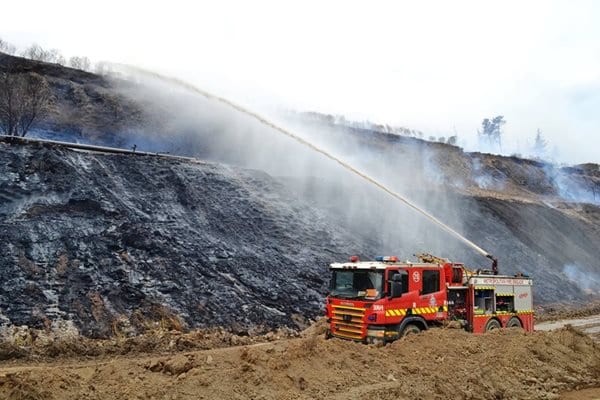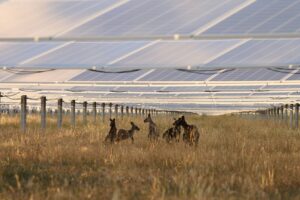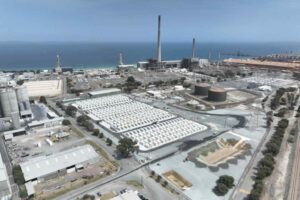Much has been said and written about the environmental cost of coal subsidies. They can prop up uneconomic coal extraction and encourage new entry and expansion that would not otherwise occur – both of which scenarios could increase carbon emissions worldwide and speed up global warming.
But what about the economic cost? A new report has revealed that the financial “propping up” of the Australian coal export industry, through a range of government subsidies aimed at boosting production, is cost costing taxpayers roughly $5.2 per tonne of coal produced, or a total of $1.8 billion a year.

The report – a combined effort from Carbon Tracker, Energy Transition Advisors, Earth Track and the Institute for Energy Economics and Financial Analysis (IEEFA) – focuses on the cost of production subsidies for fossil fuels, as opposed to subsidies aimed at boosting consumption.
The report further focuses on subsidies for thermal coal, the most carbon-intensive of the fossil fuels, and their impact in a 2035 framework based on to two key markets: America’s Powder River Basin, and Australia.
And the resulting analysis – Assessing Thermal Coal Production Subsidies “shows significant levels of (production) subsidies present in both of the above supply source locations,” the authors say.

Of course, one of the clearest and freshest examples of governments investing in uneconomic, new entry coal extraction and associated infrastructure expansion that, otherwise, would not happen, is the Adani-owned Carmichael coal project in Queensland’s Galilee Basin.
As the report notes, Freedom of Information searches have revealed that former Queensland Premier Campbell Newman promoted the Adani coal, rail and port project proposal through multiple offers of taxpayer subsidies and the provision of enabling capital.

These included an open-ended coal royalty holiday; free water allocations and purpose-built $500-1,000 million water infrastructure; construction of a new $50-100 million tug harbour; underwriting for the related single-purpose greenfield coal-freight railway; and a proposed “purchase” of dredge spoil at Adani’s Abbot Point Coal Terminal to offset growing investor concerns about the commercial viability of the project.
Of course, those “investor concerns” about the project’s viability were, it was later revealed, also held by Queensland Treasury, and just about everyone else but the Queensland and federal Coalition governments.
Then Prime Minister Tony Abbott also championed the Galilee Basin project, describing coal as “good for humanity” and vital for Indian energy democracy, and was most recently seeking to subsidise its rail development via the federal government’s Northern Infrastructure fund.
But as the report notes, even the International Energy Agency has warned that subsidies to fossil fuels like coal are anything but good. They create “market distortions (that)…result in a longer-term economic cost. (They) crowd out more productive and meritorious government spending and depress private investment.”

Mercifully, the market seems to have taken control of the situation in Queensland (although Newman and Abbott have both since been unceremoniously ousted from their positions of power), with the Adani project remaining in financial (and regulatory) limbo as more and more major lenders rule it out.
The other major area of subsidiation to coal production, says the report, comes under the category of mine rehabilitation, which in Australia has been valued at $4/tonne.
“The OECD estimates that between 2005 and 2011 the Australian government provided a total of $1,150 million of financial assistance via tax subsidies and direct spending to the Australian coal industry,” the report says.
This included accelerated depreciation for coal mining buildings, capital expenditure deductions, immediate write-off of exploration and prospecting costs, government costs of the Clean Coal Fund and New South Wales Derelict Mines Program, among others.
This is the equivalent of $1.25 for every tonne of coal sold over the data period, says the report.
As you can see in the break-out box below, the case study used to illustrate this sort of subsidisation – and its direct and associated cost to Australian taxpayers – is Victoria’s Hazelwood coal-fired power plant, and the mine fire disaster that struck there in 2014.

The report notes that, according to independent anlaysis of Australian mine closure and rehabilitation liability published in May 2015 by Lachlan Barker, Australian mining has generated at least $A18 billion of rehabilitation liabilities, mostly unfunded.
Finally, the report notes that the Australian government also hands out over $6 billion annually under its Fuel Tax Credits Scheme – an estimated 40 per cent of which goes to Australia’s mining industry, and of this share, a third flows to coal mining.
In comparison to prevailing tax levels on petrol and other fossil fuels within the OECD (aside from North America), this exemption for coal mining companies constitutes special treatment, says the report.
“Removing subsidies to coal extraction should be a central plank of any country’s fiscal and environmental plan,” the report concludes.
“Particularly as subsidies to renewable energy come under increasing pressure, subsidies to the mature coal sector should not be ignored.”








